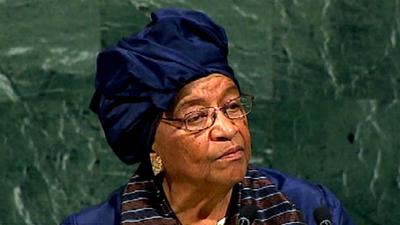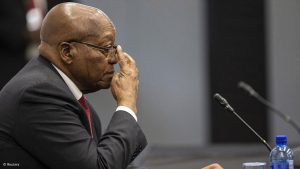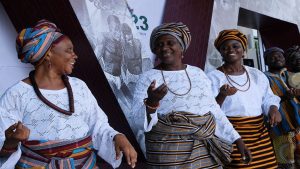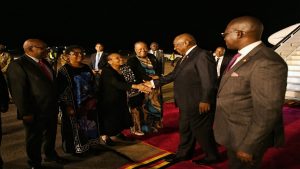Several African leaders addressed the United Nations Secretary General Assembly on wide range of issues, including the empowerment of women, the human rights situation of the Rohingya Muslim minority in Myanmar, United Nations reform and the tensions on the Korean Peninsular.
Africa’s first women President gave her final address to the General Assembly before she leaves office later this year.
This is what President Ellen Johnson Sirleaf of Liberia had to say: “Eleven years ago, in September of 2006, I stood before this August body as the newly elected president of the Republic of Liberia, and the first woman to be democratically elected as head of State on the African continent. When I speak to women in Africa and across the world, I’m humbled by the inspiration drawn from my experience. The next generation must belong to women,” adds Sirleaf.
A visibly slender and somewhat frail Nigerian President Muhammadu Buhari drew attention to the plight of Myanmar’s Muslim minority, hundreds of thousands who have fled across the border into Bangladesh.
“We are now confronted by the desperate human rights and humanitarian situations in Yemen and most tragically in the Rakhine State of Myanmar. The Myanmar crisis is very reminiscent of what happened in Bosnia in 1995 and in Rwanda in 1994. The international community cannot remain silent and not condemn the horrendous suffering caused by what; from all indications is a state-backed programme of brutal depopulation of the Rohingya inhabited areas in Myanmar on the bases of ethnicity and religion,” said Buhari.
Zambia’s President Edgar Lungu was among those who raised the question of UN reform
“The world looks up to this body to encourage dialogue on global challenges in an inclusive manner. This is the only practical way of ensuring meaningful and effective international cooperation. It is therefore, a need to reform the United Nations and Zambia believes that the UN reforms which have been launched will be incomplete without meaningful reform on the Security Council. It is our hope that the reforms will make the Security Council more representative, democratic and accountable to all member states, irrespective of status,” says Lungu. Uganda’s long-serving President Yoweri Museveni had some advice on how to solve the crisis on Korean Peninsular. “I will not answer all of them but I will just pose them to you so that you answer them yourselves. I have one question: who would lose if North Korea and South Korea those kith and kin were left alone to discuss their reunification. The Korean nation came into existence ever since 1234AD according to the information I saw on the Internet. Why can’t these people, they are one people, why can’t they discuss their reunification instead of maintaining a divided peninsular and it is our job to manage endlessly that division?,” asks Museveni. President’s Jacob Zuma, Robert Mugabe of Zimbabwe, Hage Geingob of Namibia and Paul Kagame of Rwanda address the Assembly on Wednesday.
– By Sherwin Bryce-Pease






